Recommended + Security & Privacy
You’ll Shudder When You See What Google Knows About Your Web Searches
Posted on
by
Graham Cluley
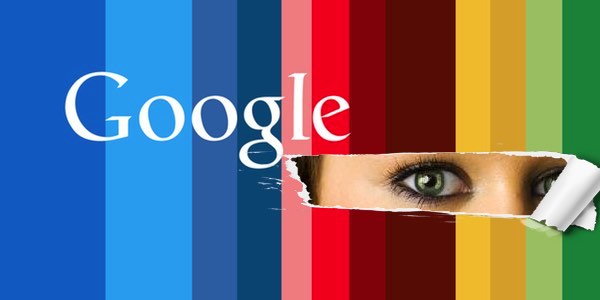
Google probably knows more about you than your mother, your partner, your boss… but chances are that you have no idea of just how much it knows.
Fortunately, there’s an easy way to open your eyes to the scale of just what the world’s most popular search engine knows about you, your interests and your peccadillos.
You may find yourself squirming when you realise Google never forgets what you’ve been typing into its search engine over the years, but, at least afterwards, you’ll be able to do something about it.
First things first, take a deep breath and visit: https://history.google.com/history/
Chances are you will see one of two things.
The first possibility is that you might see what I saw when I tried it — a screen telling me that I had disabled web history and had specifically forbidden Google from collecting my search results.
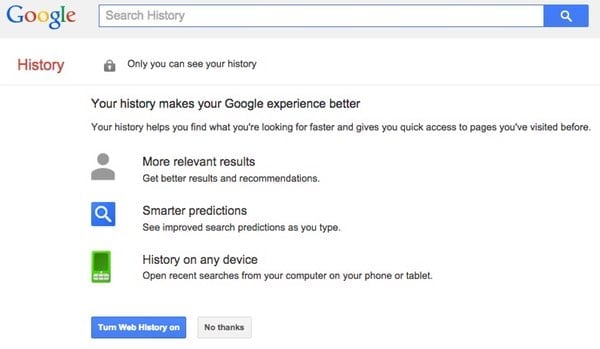
That was a relief, I can tell you.
But what you’re more likely to see is something like this:
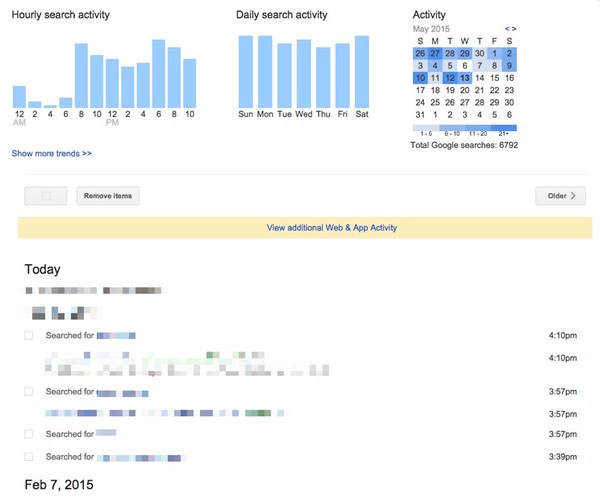
In the case of the anonymous guinea pig who graciously allowed me to screen capture their web searching history, I would have been able to trawl back through over five years worth of web searches, learning about their medical complaints, old school friends they were curious about/stalking, and perhaps even their taste in porn.
 In short, this is the URL you go to in order find out what’s on someone’s mind, what they’re thinking about, what they’re planning to do, and who they’re planning to do it with. That’s immensely valuable information, not just for advertisers (which is why Google wants to collect it), but also — potentially — for hackers and identity thieves.
In short, this is the URL you go to in order find out what’s on someone’s mind, what they’re thinking about, what they’re planning to do, and who they’re planning to do it with. That’s immensely valuable information, not just for advertisers (which is why Google wants to collect it), but also — potentially — for hackers and identity thieves.
Not to mention that some of your web search history might not be the kind of thing that you would feel comfortable sharing with your friends, loved ones, work colleagues and mother-in-law.
Chances are that the archived history of past searches you have undertaken runs for many, many pages, so the first thing you may wish to do is to download it — so you can have a permanent record of just how carefree you have been with your Googling.
Fortunately, Google provides instructions on how to download your entire history of saved search terms. Google says this gives you “access to your data when and where you want”:
- Visit your Web & App Activity page.
- In the top right corner of the page, click the Options icon (a cog) and choose Download. A warning, at this point, to download the sensitive information on shared or public computers is displayed.
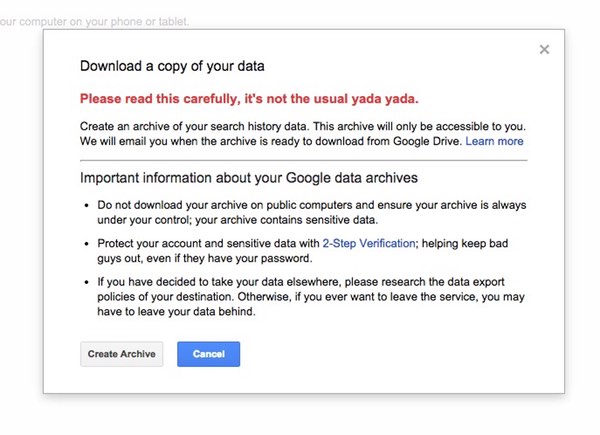
- Click Create Archive.
- When the download is complete, you’ll get an email confirmation with a link to the data in your Google Drive account.
Of course, what you may very well like to do is copy me, by not only deleting the search history that Google stores on its servers, but also prevent future searches from being saved.
Google provides instructions on how to do that here.
While you are at it, consider disabling other data-slurping features of Google via Account History, if you aren’t comfortable sharing too much of your private data with them.
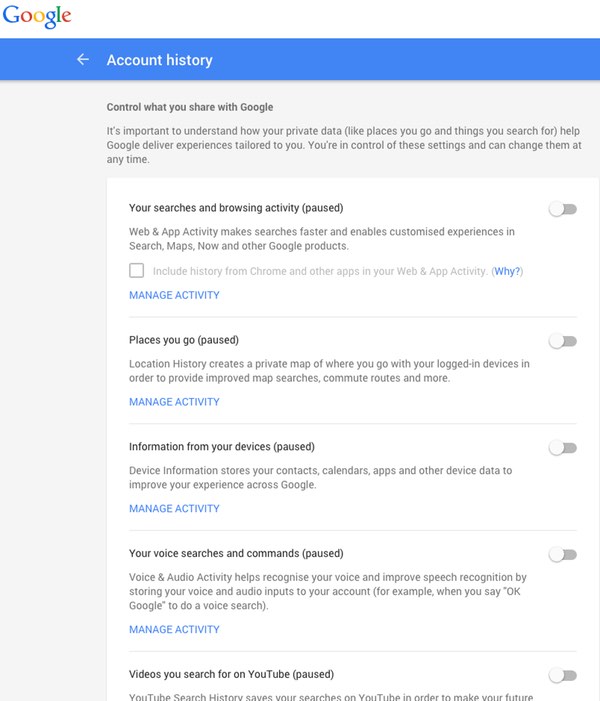
Of course, you have other options — like never signing into a Google account or switching to more privacy-conscious alternatives to Google’s search engine, like DuckDuckGo, but those solutions are unlikely to sit well with everyone.
Ultimately you should never forget that there is a very good reason why Google isn’t charging you money for using its services. You’re not Google’s customer. The data you give Google about yourself is what it effectively sells, analysing it to allow advertisers to target you more closely.
If you don’t like the thought of how much information Google is gathering about you, take control of your own data and stop feeding it information.